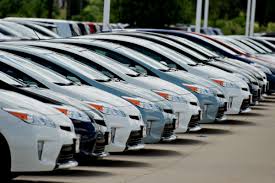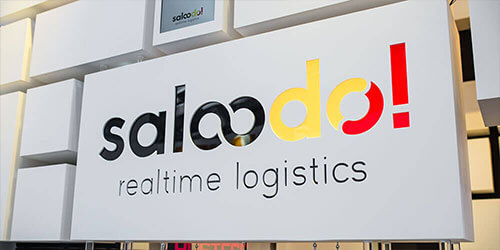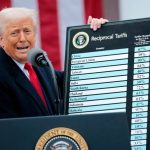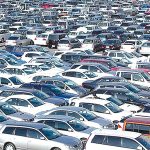Freight forwarders in Nigeria have raised concerns that vehicle importers may soon face higher costs due to plans by former US President Donald Trump to impose auto tariffs of around 25%. The proposed levies, which could take effect from April 2, are part of broader trade measures that also target semiconductor and pharmaceutical imports.
According to a Reuters report on Wednesday, these tariffs are the latest in a series of protectionist policies that could significantly impact global trade. Trump has long criticized foreign automotive tariffs, arguing that US exports are treated unfairly.
The Head of the Department of Shipping and Terminals at the National Association of Government Approved Freight Forwarders (NAGAFF), Nnadi Ugochukwu, stated that the tariff hike would directly affect vehicle imports into Nigeria.
“Yes, it will definitely affect vehicle importation into Nigeria because most of the cars that come into Nigeria are from the US. So if they are buying it higher, it means they will be selling it higher to Nigerians,” he said.
Nigeria remains a key market for used cars from the United States, with thousands of vehicles shipped annually. Higher import costs could push up vehicle prices, making cars less affordable for buyers.
The European Union (EU) Trade Chief, Maros Sefcovic, is set to meet with US officials—including Commerce Secretary Howard Lutnick and Trump’s nominee for US Trade Representative, Jamieson Greer—to discuss the tariffs. Trump has claimed that the EU has agreed to lower tariffs on US cars, but EU lawmakers have denied any such commitment.
Additionally, Trump has announced sectoral tariffs on pharmaceuticals and semiconductor chips, stating that duties will start at 25% and could increase over the year. He noted that companies in these sectors would be given time to set up US-based manufacturing plants to bypass the tariffs.
If implemented, these tariffs could have far-reaching consequences for Nigeria’s auto industry, increasing costs for importers, dealerships, and consumers. The rising cost of vehicle imports may also fuel demand for locally assembled cars, potentially boosting Nigeria’s automotive manufacturing and assembly sector.
With the global trade landscape shifting, Nigerian importers may need to re-evaluate sourcing strategies, possibly looking toward alternative markets such as Europe and Asia for vehicle imports.










